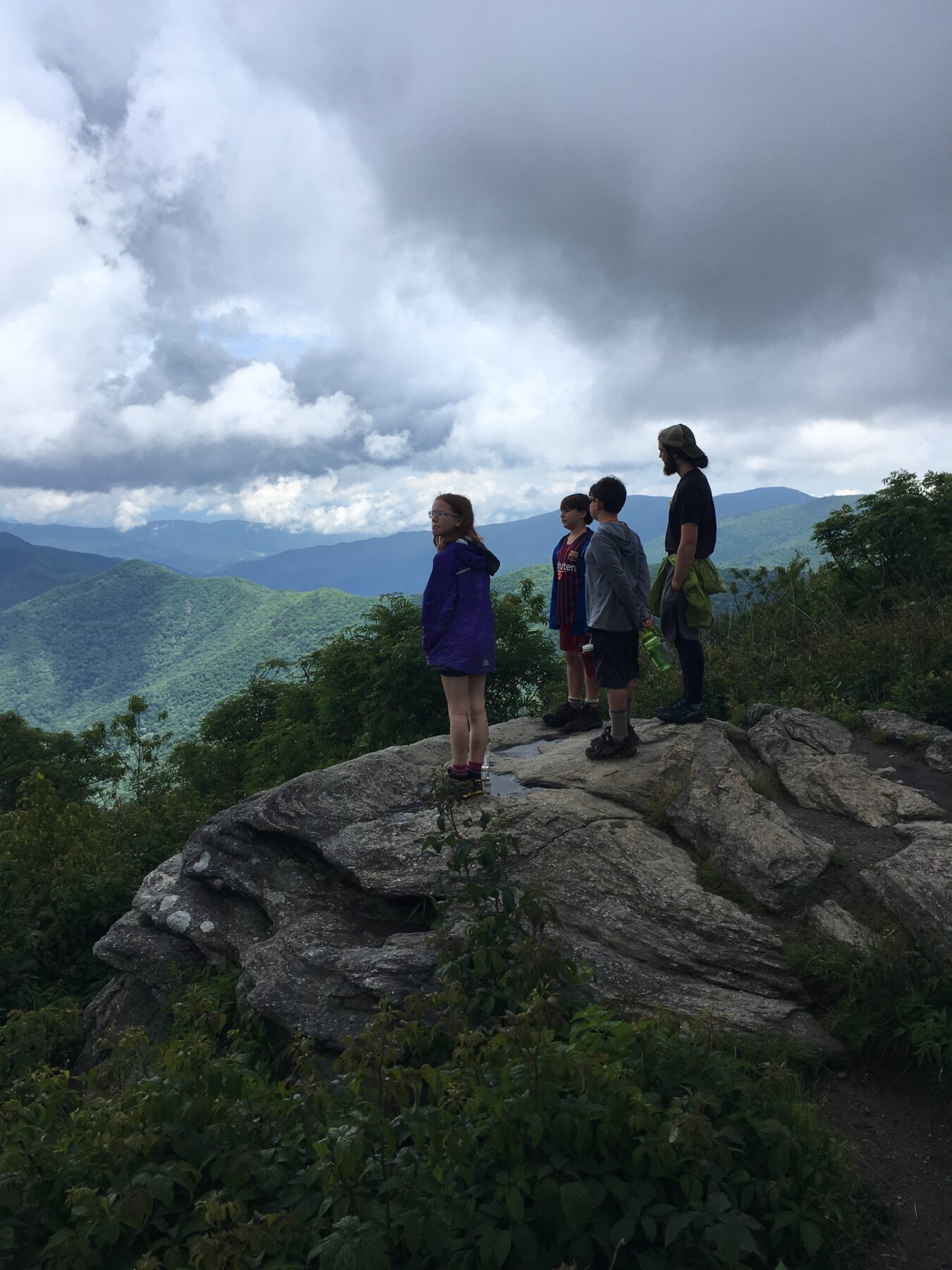By Ed Haubenreiser, Hante Adventures and Outdoor Program Manager
For nearly fifty years, Eagle’s Nest Camp has been providing opportunities for young people to engage in new experiences and learn from the challenges they encounter. It began in 1972 with Hante, developed as an education program similar to the structure and functionality of the North Carolina Outward Bound School.
Over time, trip locations, philosophies, and goals diversified and expanded. One program in particular was Paleo: The Primitive Learning Experiment. Paleo was a way for campers to apply particular technical skills developed in camp towards a true backcountry wilderness experience, all the while learning the history of our ancestors by living the way they did: foraging for food, building a fire from natural resources, identifying plants and tracking animals, to name a few examples.
The program was not only successful in fulfilling the Eagle’s Nest mission of “Experiential education for young people, promoting the natural world and the betterment of human character,” but also gained national recognition by the American Camp Association. In 1985, it received the Eleanor P Eells Award for Program Excellence, distinguishing camp programs that encourage, achieve, and present “effective, creative responses to the needs of people and/or societal problems using the camp environment.” While young people sat in classrooms and studied for the majority of the year, Paleo offered a chance for them to learn the history of who they are in a way they potentially had not learned before.
The benefits of such an experience can be well understood from this excerpt by former Paleo participant Hannah Rodriguez. After spending a week in a remote area of Pisgah National Forest, she wrote the following for a project during the next school year:
Many years ago, humans lived as mere parts of the surrounding environment. They ate what they could find. They protected themselves with hand-crafted tools. Their lives revolved around using what they had to survive.
These instincts have left our kind and have been replaced by modern items and actions. What was foraging then is a short drive to the supermarket now. Finding shelter is substituted for booking a spot in a hotel. Our taste for fresh water is exchanged for coke and fruit punch. Fire, a crucial and fascinating discovery in those times is now as simple as pulling out the matchbook from a cabinet. Yes, it seems as though there is no hope for a raw and wild life.
Our chance at a free and rugged existence may have been ruined by humanity’s practices, but that doesn’t mean we can’t relive the experience.
Paleo is a short travel back in time to the ways our ancestors lived. Hike for many miles to reach a safe place to spend the night. Purify your own drinking water to hydrate yourself on your trek. Gather wood to feed the growing flames of a fire you lit yourself. Feast on a hearty meal while your eyes do the same upon a glorious landscape. At night, hunker down in your sleeping bag beneath a waterproof tarp, listening to the sounds of evening wildlife. Set up bear hangs. Strengthen bonds with fellow campers.
The goal of Paleo is to learn to live and live to learn. To run into the open arms of nature. To find yourself in a place among tangled undergrowth, streams, and mountains.
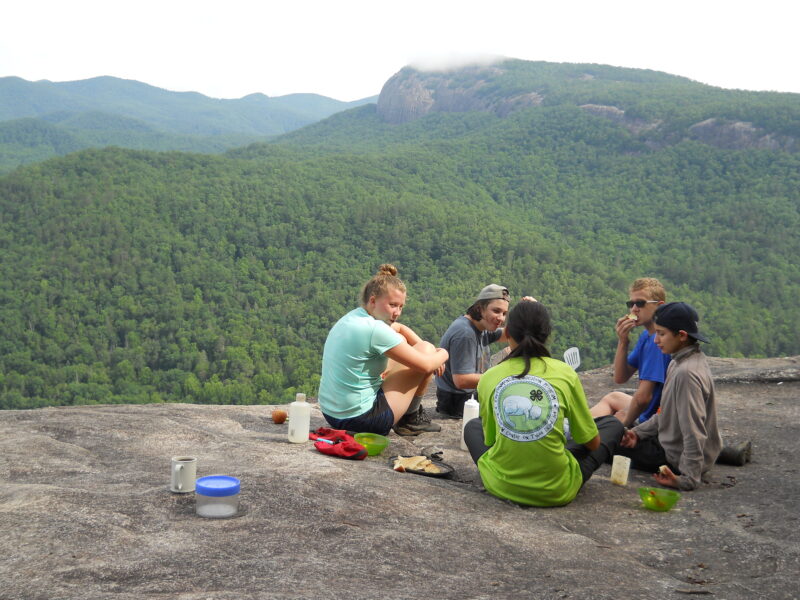
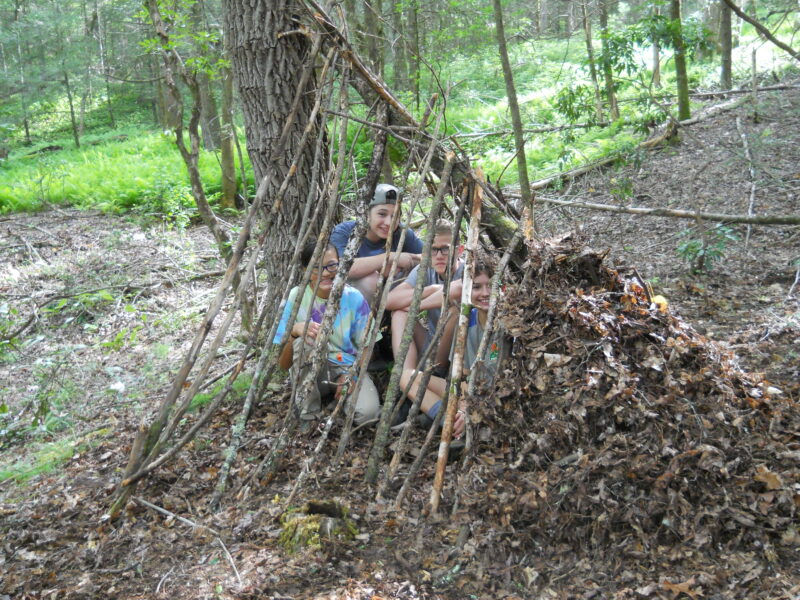
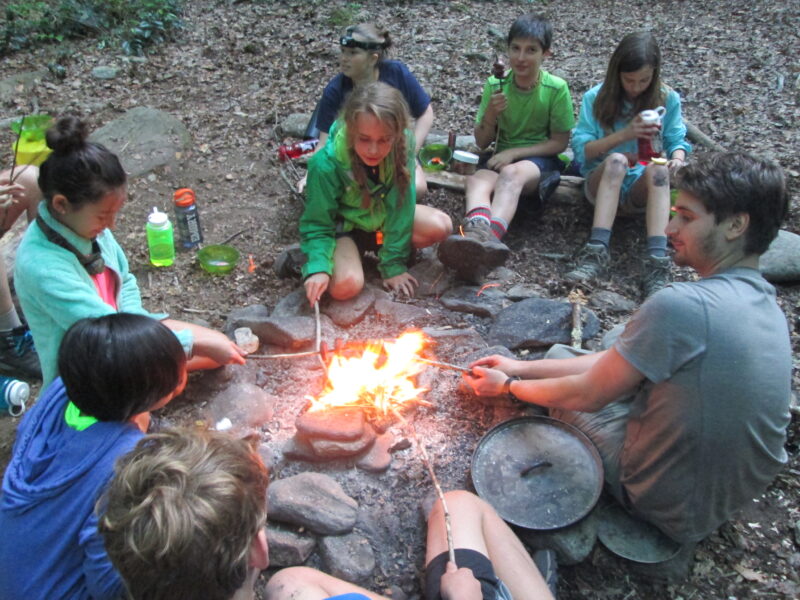
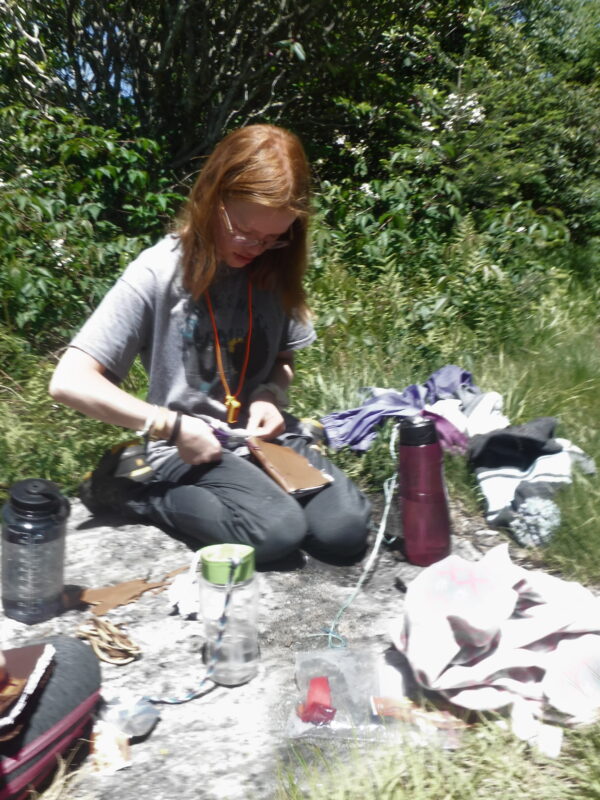
Shots from Paleo over the years
This summer, teenage campers will have the opportunity to get a taste of both Hante and Paleo on a new one-week trip taking place during first session! Before departing, participants will spend time in camp sharpening the technical skills necessary for traversing the backcountry. They will then travel west towards the Snowbird Wilderness Study Area outside of Cherokee National Forest, with a brief stop at the Highlands Nature Center to learn more about the area’s local history and ecology. From there, the group will apply their skills and local knowledge as they travel by foot through the remote setting of Snowbird over the course of four days. At the conclusion of their trek, they will hop back in the van to drive along the scenic Cherohala Skyway towards a trout hatchery and final camping spot. The trip concludes with an epic day of whitewater rafting on the Nantahala River with the famed Nantahala Outdoor Center in Bryson City.
We hope you will consider embarking on this inaugural Eagle’s Nest adventure! The journey will be of no additional cost to your camper’s current tuition, and signing up can be done upon arrival – with the understanding that attending the trip will influence their activity schedule while in (and out) of camp.
We look forward to welcoming campers in just over a month! Enjoy the spring and see you soon!
